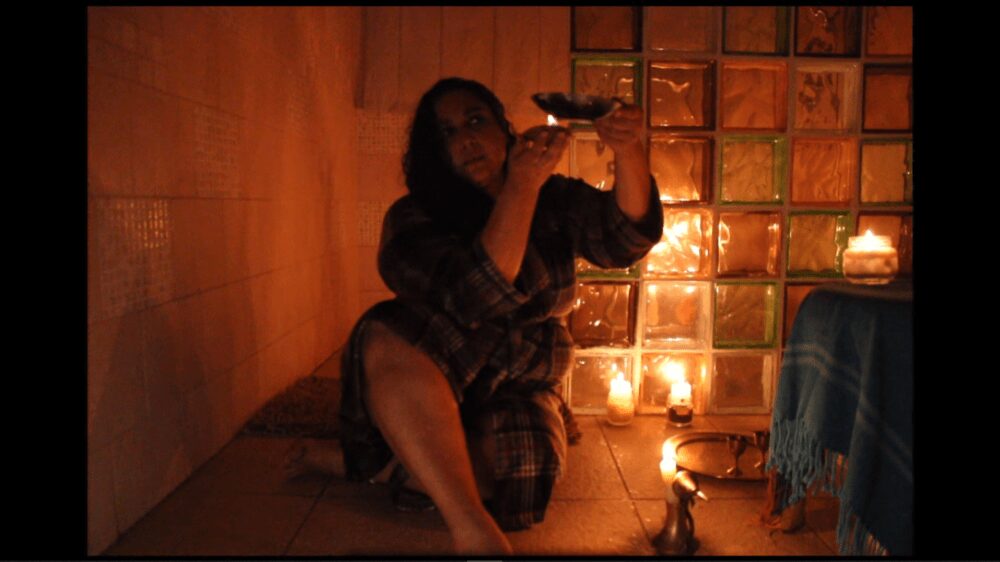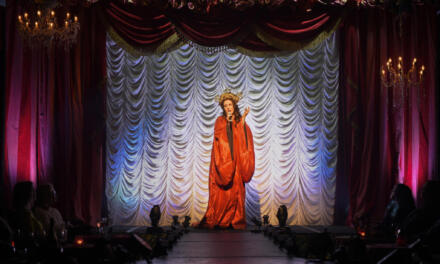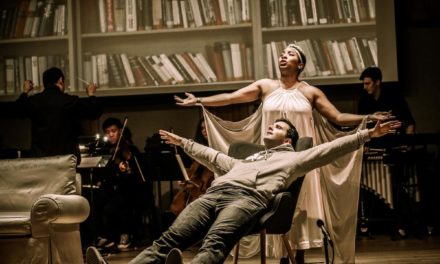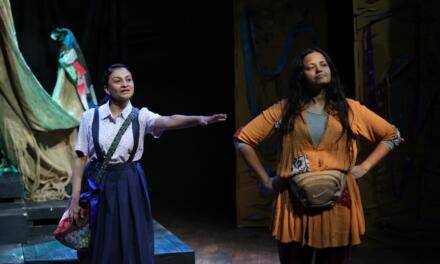Theatre is coming back slowly but surely. Though a difficult medium to translate online, it has been done with numerous shows, especially since the Covid-19 pandemic hit. Theatre for One: We Are Here is a collaboration between The Arts Center at NYU Abu Dhabi, the US-based Octopus Theatricals, and Kenya-based Nairobi Musical Theatre Initiative and Rainmaker Limited.
Theatre for One show comprises six commissioned world premiere plays, each less than ten minutes in length. For each ticket booked, an audience member is invited to experience one of the stellar performances, selected at random.
The Interview, written and performed by Aleya Kassam, directed by Esther Kamba under the mentorship of Kholoud/SRĐA; The Living Ghost, written and performed by Mercy Mutisya, and directed by Kholoud Sawaf with associate director Nyokabi Macharia; Aging, written and performed by Laura Ekumbo, directed by SRĐA with associate director, Esther Kamba; The Beanie, written and performed by Mūmbi Kaigwa (documentary theater), directed by SRĐA and Nyokabi Macharia as associate director; Killer Cop Lives Fast Life, written and performed by Sitawa Namwalie, directed by Kholoud Sawaf with associate director Esther Kamba; and Cucu, written and performed by Anne Moraa, directed by Nyokabi Macharia under Kholoud Sawaf/SRĐA mentorship.
The stories told in the show are as rich as the talent behind this edition.
I had the wonderful opportunity of attending two shows, Cucu and Killer Cop Lives Fast Life. As I logged onto the Theatre for One website, I wondered how the performance and the experience would translate online. I am not the techiest person on the block and so anything that requires me to log on and click, and again to gain access puts me off. However, the team behind this project made access to the online theatre space very simple.
Every person had a unique code with which to access the show, after which we received instructions on how to test that our camera, microphone and sound were working. Phew, so far so good. Then came the waiting room area which at first was this black screen with random pop ups of word bubbles- which turns out were other people from around the world chatting. See? I told you I’m not the techiest person.
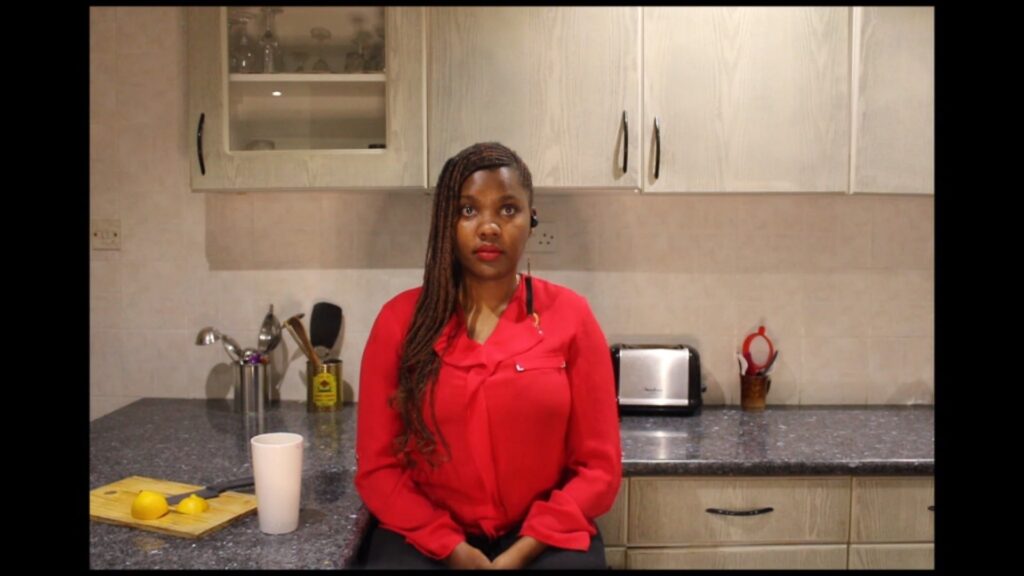
Anne Moraa in Cucu. Directed by Kholoud Sawaf/SRĐA and Nyokabi Macharia.
It didn’t take long before we were ushered into the show. We had been told that the performer would be able to see us. Thought that you could be on your phone or doing something else other than paying attention to the play? You would be logged off. All attention thus had to be focused on the actor before you.
First was Sitawa Namwalie in Killer Cop Lives Fast Life. She had taken the time and effort to look as close as possible to Caroline Kang’ong’o, the woman whose story the play is based on. Caroline was a police officer portrayed as a rebellious woman who had a problem with authority, loved the finer things in life and preferred male company both platonic and otherwise.
In July 2021, she was in the headlines for allegedly murdering two men, and thereafter branded Killer Cop who specifically targeted victims from that gender. She was found dead in what was reported as a suicide less than two weeks after the alleged murder. The matter was never solved, but there was more to the case than met the eye, and as alluded to in Namwalie’s piece, she knew a lot of things that possibly led to her demise.
At the point we are meeting her in the story she combs through the reporter’s words and gives her own commentary. It is a simple set up in the living room with the newspaper as the only prop, yet so powerful. What Sitawa’s interpretation does is humanize the dead police officer, she gives her depth outside of the negative narrative that swirled in the media.
Next was Cucu written and performed by Anne Moraa. The set for this one is at a kitchen counter with our main and only character sipping a cup of her favorite tea as she recounts the gory tale of how her frail grandmother stood up to her cruel husband by chopping off his hand. She recounts this tale to her mother as a secret to be kept from her husband, all as she occasionally fiddles with a very sharp kitchen knife.
To say that I thoroughly enjoyed this piece would be an understatement. Moraa is engaging from the start, prompting an almost mandatory response from the audience. Her words expertly create this imagery in our minds of the time and place of the incident. Her timing in creating suspense is spot on and the only thing one is left to wonder is what is coming next.
I was genuinely sad when it ended- it was that good. I don’t know if it’s the fact that Moraa and Nyokabi have worked together before or that Nyokabi (the director) is also an actor which helped with the performance, but it was cathartic. The whole experience was a new kind of theatre experience.
After the show there is a message board where the audience can post their photos and leave comments, a kind of post-show socializing in a theatre lobby, only this is virtual.
More information on the show here.
This article was originally published by The African Theatre Magazine on September 27th, 2021, and has been reposted with permission. To read the original article, click here.
This post was written by the author in their personal capacity.The opinions expressed in this article are the author’s own and do not reflect the view of The Theatre Times, their staff or collaborators.
This post was written by Sakina Mirichii.
The views expressed here belong to the author and do not necessarily reflect our views and opinions.

